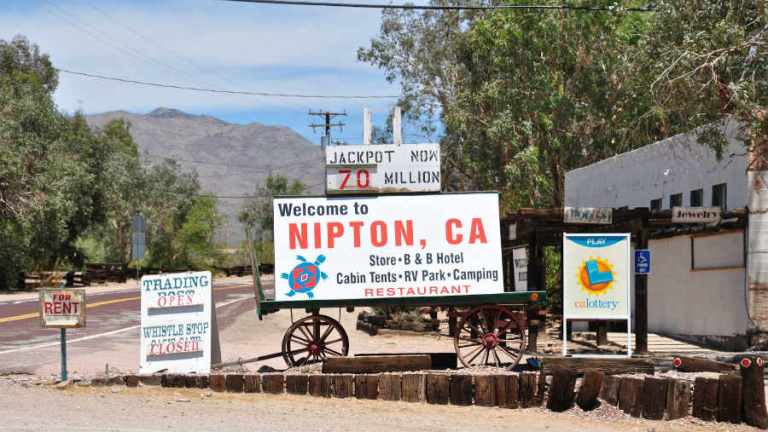Nipton, Calif., Goes To Pot, Literally

In real estate and in retail, location is everything. Malls operated on that theory for years: Put a few anchor stores in to draw foot traffic and the smaller ancillary stores feast on the revenue rewards of being close by. Of course the inverse effect has also been shown to be a possibility of late; the anchor stores come unmoored, that mall retail space becomes fairly useless as consumers venture out to walk their hallways less and less. And even today in the “post-mall” world, some malls are doing just fine, like the top-tier ones in affluent areas serving a niche of well-to-do consumers buying the kinds of high-end goods people tend to like to see in person.
And lest one think that real estate has been rendered moot in the era of digital commerce, it is worth remembering that even Amazon, home to nearly half of the internet’s U.S. sales, acquired Whole Foods to get itself not just a physical footprint, but the right physical footprint.
And though retailers use a variety of tricks of the trade to assure good real estate position, there are limits to how much they can control their retail environment. The best Main Street location is only as good as the Main Street that it is on. As the above mall example proves, what is prime real estate one day can be an albatross the next – if things outside a merchant’s control change around in the retail environment.
But what if a merchant could literally control the entire environment by buying it soup to nuts?
Or, in the case of Nipton, Calif.’s new owners, plants to bongs, because the town’s new owner is American Green Inc., and its area of retail specialty is marijuana; particularly the growth and technology that supports it.
Why Buy A Town?
Jokes about the proposed endeavor have abounded since the plan was announced. Our favorite so far came from the comedians at CNN, who noted that someday that sign informing tourists of their arrival in town could say “Welcome to Nipton, A Place To Get Stoned.”
Nipton is a tiny town that sits on the border with Nevada and is home to about 20 souls. The town, about an hour from Las Vegas and three hours from L.A., has a hotel, a general store and a schoolhouse as its main features.
American Green managed to buy the whole thing – all 120 acres of the town – for a very reasonable $5 million. And from there, it hopes to build America’s “first energy-independent, cannabis-friendly hospitality destination.”
Everyone has a dream after all.
Nipton, appropriately enough, has it roots in the mining communities that popped up in the California and Nevada desert during the gold and silver rushes that sent eager prospectors and fortune hunters flooding west during the 19th century. These days, its new owners at American Green are hoping that Nipton can once again flourish as a boom town, though this time the rush it is chasing is green in nature.
But before Nipton can become Palm Springs for pot heads it will first get something of an industrial kick start as American Green has announced its first priority will be bottling cannabis-infused water in town. Cannabis infused water is exactly what it sounds like and seems to be a product custom made for people who don’t want to have to choose between working out and getting high.
But the bigger vision for Nipton goes far beyond creating hydration possibilities for stoners with an active lifestyle. The plan involves using the space to cultivate cannabis and edible products within next 18 months. The devlepment will cost an estimated $2.5 million above and beyond what the Arizona-based firm has already spent on the town itself.
From there, the company hopes to build out a “first-of-its-kind eco-tourism experience for conscious cannabis consumers,” complete with mineral baths, retail outlets and “green friendly” hotels.
But will the world ever see this marijuana-laced vacation paradise? That is a much more complex question. The state of California amended its laws to allow for the recreational consumption and (properly licensed) cultivation of cannabis, but the federal government continues to list marijuana as a Schedule 1 narcotic, and current Atty. Gen. Jeff Sessions has indicated that he would like to see greater enforcement of federal law in states that have passed local legislation in contradiction to it.
Sessions, however, has met with continual push-back from the rare bipartisan swath of legislators in both house of Congress who do not wish to see such a ramp up in enforcement in states that have explicitly voted for less. There is also a bipartisan bill currently floating around that would de-list cannabis as a Schedule 1 narcotic, though such legislation has been unsuccessfully floated many times in the past.
So is buying a whole town the investment of the future? Hard to say as so many factors are in flux.
But if things break American Green’s way, it just might be able to give Disneyland a run for its money as California’s ranking happiest place on Earth.